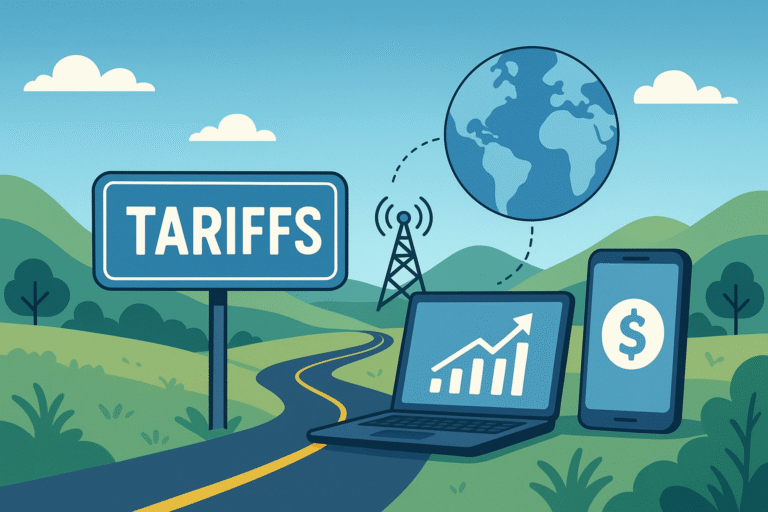In recent years, Malaysia’s manufacturing sector has been on a determined march toward greater automation and Industry 4.0 adoption. However, an underappreciated factor shaping this progress is trade policy, particularly tariffs, both on imports into Malaysia and on Malaysian exports.
For local manufacturers and technology adopters, understanding how these tariffs influence costs, supply chains, and investment decisions has become increasingly important.
Let’s break down how tariffs are shaping Malaysia’s automation journey.
1. Malaysia’s Tariff Situation
Malaysia’s import tariffs for industrial goods are generally low (around 6%), and many automation-related products are duty-free. The government, through MIDA, has removed tariffs on over 300 high-tech items to encourage innovation and technology adoption.
However, Malaysia is still affected by tariffs from other countries, like the U.S., which recently increased duties on some Malaysian exports. This can hurt export revenue and slow down investments in automation.
2. The Impact on Automation Imports
Most automation hardware, like robots, sensors, and control systems, comes from abroad. Even small import tariffs (5–10%) can increase overall equipment costs.
The good news? Government incentives, such as the Automation Capital Allowance, help companies offset these costs by offering up to 200% tax deductions for automation investments.
This means businesses can still adopt new technologies while staying competitive.
3. Tariffs and Malaysia’s Exporters
When export markets impose tariffs on Malaysian goods, manufacturers earn less, which may delay new automation projects. But there’s also an upside:
As global companies relocate from high-tariff countries like China, Malaysia becomes a more attractive manufacturing hub. New factories mean more opportunities for automation providers like Mirai Automation to step in.
What Businesses Can Do?
Here’s how manufacturers can manage the tariff impact:
- Source smartly: Buy automation equipment from countries with free trade deals with Malaysia.
- Leverage incentives: Use the government’s automation tax benefits to lower project costs.
- Plan for flexibility: Invest in automation systems that can adapt to different products and markets.
- Diversify exports: Don’t depend on one country, spread out your market risks.
While tariffs add cost pressures, they also push Malaysian industries to become more efficient, flexible, and automated. With government support and growing regional demand, the long-term outlook for automation remains strong.
Because at the end of the day, automation isn’t just about replacing labour, it’s about staying resilient in a changing global economy.
Partner with Mirai Industrial Automation
At Mirai Industrial Automation, we help businesses in Malaysia upgrade their production lines, design smart factory systems, and implement cost-effective automation solutions.
Whether you’re starting your automation journey or expanding your capabilities, our team can help you stay ahead, no matter how the global trade winds shift.
Contact us today to discover how we can make your automation investment smarter, faster, and future-ready.

